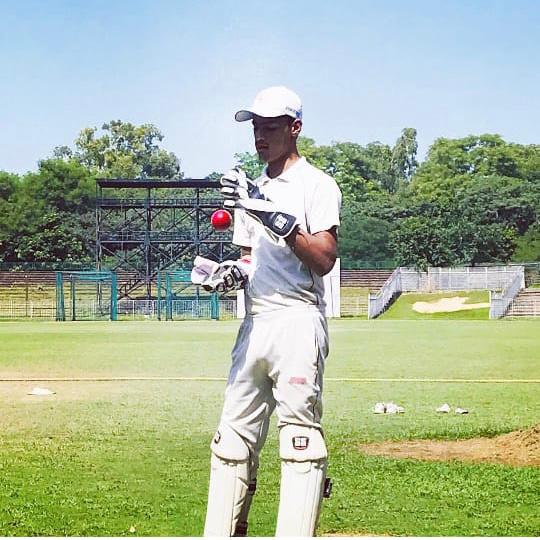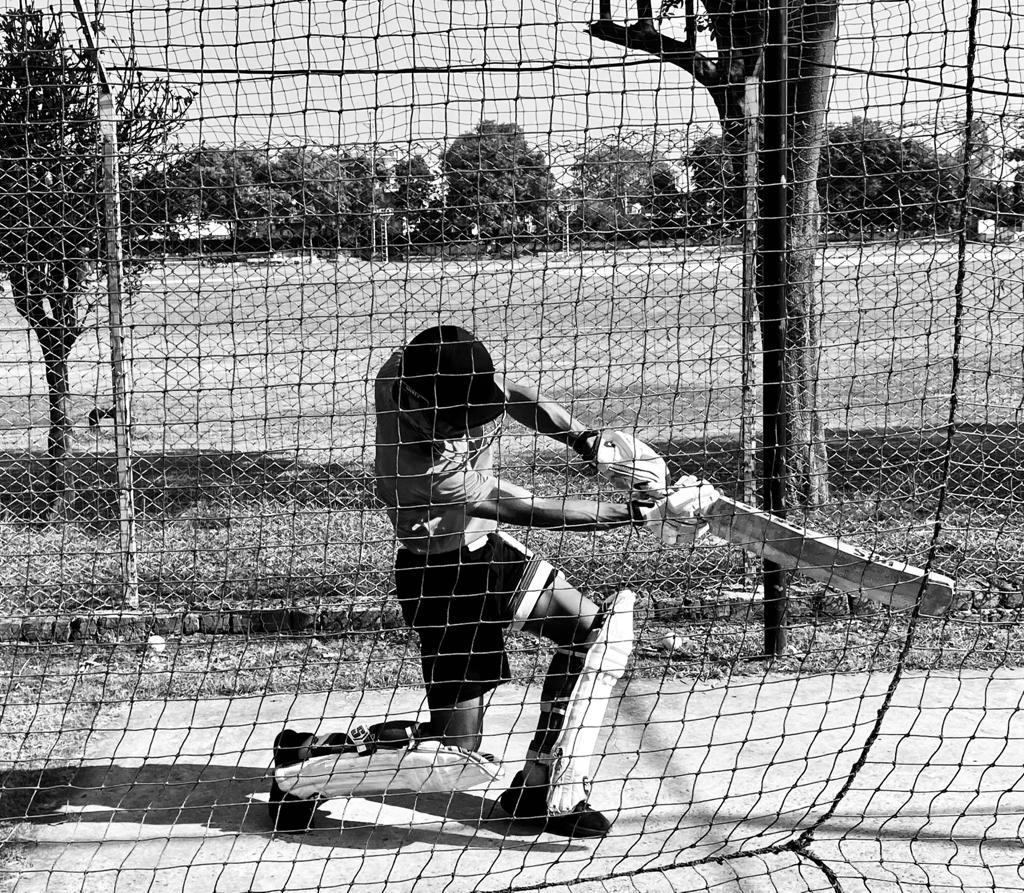The Dreams and Hopes of an Aspiring Young Cricketer
The average age of India’s giant population is very young, just 28. And many of these youngsters have two groups they grow up idolising – Bollywood and cricket. Akshit Rana, who always dreamed of becoming a cricketer, is one of these men.
But where does this country-wide craze for cricket come from when it isn’t even our national sport? This popularity initially had a colonial background. Cricket at that time was seen as an elite sport, and so playing cricket was seen as being the racial equal of the British. Then it is no surprise that India’s win at the 1983 World Cup was a cause for such riotous celebration. This victory gained further traction for the sport.

At first glance, Akshit Rana comes across as a cocky young man with more ambition than he can handle, rather reminiscent of one of his idols, Virat Kohli. The 21-year-old wicketkeeper recently represented Chandigarh in The Syed Mushtaq Ali Trophy and dreams of being able to play for his country at the world cup someday. But a deeper analysis gives way to a complex man with a sensible head on his shoulders.
“My first memory of cricket was watching Sachin Tendulkar with my mom on TV when I was barely a year old”, he explains. “I have been playing since I was a kid – you know, how we all play – but I got my professional start at 14.”
Many youngsters, some of who later to become cricketing legends in their own right, grow up idolising cricketers. Vijay Hazare was one of the earliest high-flyers of Indian cricket, best known for his double century against Australia in the 1947-48 Test series. India’s team at the 1983 World Cup also saw players like Kapil Dev and Sunil Gavaskar become immortalised as heroes of the sport. The ‘90s and the 2000s gave way to a newer generation of cricketing greats in the form of Sachin Tendulkar, Rahul Dravid, and M.S. Dhoni.
Rana didn’t always have access to the finest facilities growing up. “I always wanted to be a cricketer; I grew up playing and loving the sport. But unfortunately, I didn’t get to play professionally until I was 14, since I lived in a village.” Shifting to Chandigarh marked a decisive change in his life as his dream came closer to becoming a reality.
Two decades ago, having access to good facilities was even more difficult, let alone having parents that would encourage their child to pursue an unorthodox career in the arts or sports. But globalisation, and in this case, the success of the Indian cricket team in recent years, has led parents to allow their children to explore fields outside of STEM.
As Rana continued to progress as a player, cricket became an integral part of his life. “During the off-season, I dedicate at least 6–7 hours of my day to the sport. Yes, training is important, but I also try to get some rest, because I know that when I have to go for a training camp, all I have is the time for breakfast, and then I am out of the door. I spend most of my day on the field.”
But I do wonder what sort of mental pressure a routine like this can create. “Obviously, a lot of mental pressure is there – especially when you have been playing for a while and people start having certain expectations from you. I just try to play the match according to the demands of the situation, and stick to my plans with a clear mindset.”
A lot of players have their own superstitions and lucky charms. Sachin Tendulkar always wore his left pad before the right one, Yuvraj Singh considers the number 12 lucky for him as he was born on 12th December at 12 noon in sector 12 of Chandigarh, and Michael Clarke believed in listening to loud music before every match. Akshit likes to put his left foot on the ground first when stepping onto the field for a match.
Akshit’s love for being relaxed physically and mentally for a match has good reason. This becomes evident when I ask him what the most exhausting part of being a cricketer is for him. “For me, I don’t find playing as tiring as travelling, practising and just being in a constant rut. I love playing matches, but the stress of selections and travelling can be overwhelming sometimes. Keeping up a certain level of fitness creates mental fatigue. All of this impacts you mentally. Everyone has their own process and experiences – some people perform well under pressure. But for me, being well rested is the most important.”
Renowned players like Virat Kohli and Ben Stokes have also commented on the mental fatigue a game as intense as cricket creates. Shane Watson’s new book, ‘Winning the Inner Battle’, deals with the same subject matter. The latter has complained about how the mental skill required for the game is never taught to players, leaving it to them to figure out their way through the stress and pressure. For many, this is a make-or-break point in their careers.
So how does a busy cricketer like him spend his free time? “I love traveling with my family – or maybe a party with some of my closest friends”, he laughs. Music is also a big respite for Rana. “I love Atif Aslam and Arijit Singh,” he adds.
Akshit’s love for being loose and at ease extends beyond cricket. “I love baggy clothes. They’re comfortable, and I think they look good on me. I wear them at the mall, when I’m hanging out with my friends, even when I’m traveling – comfort is really important for me.” I ask him what his favourite clothing item is. “ I love shoes and jackets – I have tons of them, of every kind. My favourite pair would have to be my University Blue Jordans.”
Many cricketers from the newer generation, like KL Rahul, Virat Kohli, and Hardik Pandya, are also known for their fashion choices. Oversized hoodies and the shiniest new sneakers are particularly popular. Tattoos and well-groomed beards also make frequent appearances.
When I asked him about his favourite innings, Rana was confused before settling for his 92* at PCA Mohali in a relatively unimportant match. “It was a match winning innings, so it has a special place in my heart. We were in a tough spot when I came in to bat – 36/6 – and managed to chase down a total of 190.”
“If I could give some advice to youngsters who are considering taking up cricket professionally, I’d tell them to play with love and passion. And if you’re playing in a country like India, have a bit of patience. Opportunities are difficult to come by sometimes, and it can take some time to establish yourself as a player.” If Akshit’s story tells us anything, it would be that there isn’t much you cannot do with passion, hard work, and a level-headed mind.

